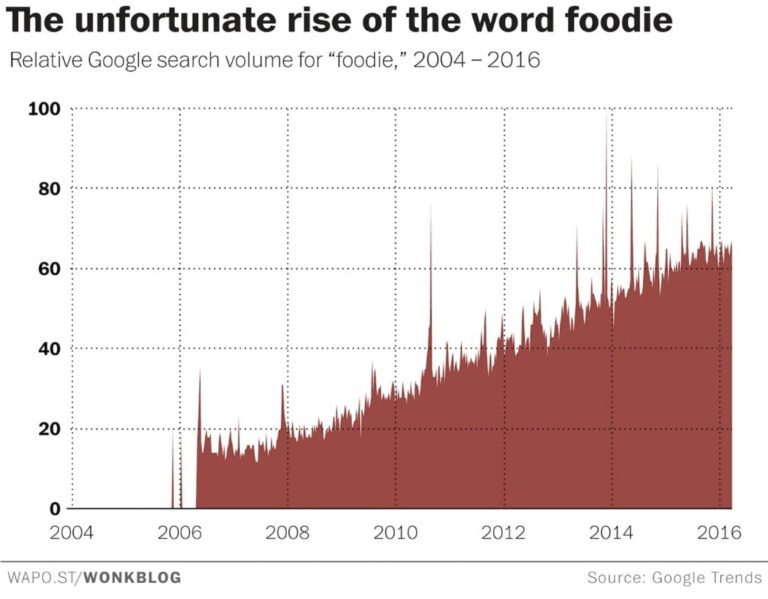This website uses cookies so that we can provide you with the best user experience possible. Cookie information is stored in your browser and performs functions such as recognising you when you return to our website and helping our team to understand which sections of the website you find most interesting and useful.
Foodies day in the us
is everyone interested in food a foodie?
The following blog post is about the journey of Laureen Rashof in becoming a food tourism manager her own business.

Celebrating Foodies Day at Food Tourism Management
Yesterday was National Foodies Day in the US which is celebrated every year on May 9th. Obviously, at FTM we were celebrating that day in particular.
The National Foodies Day was invented in 2017 by Lori Brown and Kevin Godbee, two Americans from Florida who are co-founders and editors of the St. Petersburg Foodies web portal. The original purpose of the day was to bring foodies and gastro fans together.
But who is actually a foodie? Everyone who loves food? Defining the term clearly is not as easy. In most cases, it depends on the eye of the beholder.
Invention of the term foodie
Apparently, the term foodie was invented by Gael Greene, a former New York magazine food critic. Nevertheless, before Barr and Levy (1984) firstly used the term in their book, it was sort of non-existent (Ferdman, 2016). In that book, a foodie is firstly defined as an elite class of admirers that dedicate themselves to gourmet food (Barr & Levy, 1984).
At that time, the expansive meaning the word foodie would embrace in the 21st century was unimaginable. Since then, the term has extremely risen in interest (Ferdman, 2016). Recently, the term has been redefined against the elite gourmets of the French cuisine in the 1950s (Johnston & Baumann, 2015). Nowadays, the term applies to a broader range of people.

As sharing food images on social media has become more frequent, the personal social and cultural identity is articulated through food (Shankman, 2015). Particularly because of the quick development and recognition of social media, the customer segment of foodies, mainly consisting of young people, is rising and materialising (Mohd-Any, Mahdzan, & Cher, 2014).
Everyday millions of pictures with the hashtag “foodie” are uploaded to social media platforms. This demonstrates that almost anyone identifies himself or herself as a foodie. In line with that, The Oxford English Dictionary even generalises the term by saying that a foodie is just a person who is interested in food.
However, Hall and Sharples (2003) clearly outlined that one must discern between average tourists who consider food and beverage as part of their travel experience from tourists that they change their destination, activities and their behaviour by their interest in foreign food (Getz et al, 2014). According to Wolf (2014), even though one is clearly interested in food, it does not automatically declare somebody as a foodie.
Goolaup and Mossberg (2017) highlighted that foodies travel with the purpose of food. They regard foods and drinks as one of the most valuable components of their holidays (Goeldner & Ritchie, 2006). According to Mapes (2015), they rather live to eat than eat to live. They glorify food as a form of art and want to live a life which is concentrated on food.
According to Mapes (2015), a foodie is connected to food through four dimensions: education, identity, exploration and evaluation.
Starting with the connection between foodies and education, foodies can be described as persons who are strongly interested in learning about food and beverage products (Mapes, 2015). Moreover, they are inspired to travel in order to consume about a specific kind of food or the typical food products of a destination (Johnston & Baumann, 2015). They are dedicated to learn about the product’s history, its qualities, production, consumption, preparation process as well as all connected dishes. Foodies seek to educate themselves about new techniques and trends (Mohd-Any et al., 2014).
Coming to the identity part, food forms the central part of a foodie’s life. It is linked to self-identification as it determines who they are. For example, in their leisure time food activities and food conversations are part of their daily routine (Mapes, 2015). For them, food contributes to a social activity and brings pleasure. Foodies want to create experiences with their friends or families (Mohd-Any et al., 2014).
Turning to the exploration aspect, foodies are adventurous. They travel to explore the unpredictable with regard to foreign foods, tastes and textures from different cultures in unfamiliar settings (Johnston & Baumann, 2015). Further, foodies want to discover a difference from their food habits at home, seek to discover limits in exoticism and the newest food trends (Merriam-Webster; n.d.).
Additionally, they are interested in cooking new recipes as well as in the consumption of familiar food in an unknown setting, in new restaurants and foreign marketplaces (Mapes, 2015).
Rounding off with the evaluation, foodies like to assess the quality of the offered product. They want to share their evaluations and experiences with others, especially online (Mapes, 2015).
To sum it up, it can be said that defining a foodie is difficult and the meaning is still changing. FTM shares the opinion that due to all self-proclaimed foodies, food culture has never been more exciting and diverse than today. As they support the industry tremendously, they should not be resented but embraced (McNeilly, 2017). Rather, they should be informed about sustainable food tourism. Further, they should be given the opportunities to make a positive impact for the destinations.
Laureen Rashof, 10.05.2022
Sources
Barr, A., & Levy, P. (1984). The official foodie handbook: Be modern- worship food. London: Ebury Press.
Ferdman, R., A. (2016). Stop calling yourself a ‘foodie’. The Washington Post. Retrieved from https://www.washingtonpost.com/news/wonk/wp/2016/03/01/why-the-word-foodie-is-terrible-and-needs-to-go-away/?utm_term=.38cf8e7de003
Getz, D., Robinson, R. N. S., Andersson, T. D., Vujicic, S. (2014). Foodies and food tourism. Retrieved from https://www.goodfellowpublishers.com/free_files/Contents%20and%20copyright-3f580243069fdd5671c258f124ce19d4.pdf
Goeldner, C. R., & Ritchie, J. R. B. (2006). Tourism: Principles, practices, philosophies. Hoboken, NY: John Wiley & Sons.
Goolaup, S., & Mossberg, L. (2017). Exploring the concept of extraordinary related to food tourists’ nature-based experience. Scandinavian Journal of Hospitality and Tourism, 17(1), 27-43. doi:10.1080/15022250.2016.1218150
Hall, C. M., & Sharples, L. (2003). The consumption of experiences or the experience of consumption? An introduction to the tourism of taste. In C. M. Hall, L. Sharples, R. Mitchell, N. Macionis, & B. Cambourne (Eds.), Food tourism around the world: Development, management and markets (pp. 1-25). Oxford, England: Butterworth Heinemann.
Johnston, J., & Baumann, S. (2015). Foodies: Democracy and distinction in the gourmet foodscape. New York, NY: Routledge.
Mapes, G. (2015). The construction of an elite middle-class: Foodie discourse in Bon Appétit magazine. Retrieved from https://repository.library.georgetown.edu/bitstream/handle/10822/760903/Mapes_georgetown_0076M_12954.pdf?sequence=1&isAllowed=y
McNeilly, C. (2017, February 16). Foodie; can a ridiculed term that encompasses everyone have any meaning at all? National Post. Retrieved from https://www.lib.uwo.ca/cgi-bin/ezpauthn.cgi?url=http://search.proquest.com/docview/1868941412?accountid=1511
Merriam-Webster. (n.d.). Definition of foodie. Retrieved from https://www.merriam-webster.com/dictionary/foodie
Mohd-Any, A. A., Mahdzan, N. S., & Cher, C. S. (2014). Food choice motives of different ethnics and the foodies segment in Kuala Lumpur. British Food Journal, 116(12), 1879-1896. doi:10.1108/bfj-07-2013-0170
Shankman, S. (2015, February 23). The big business of food tourism and why it matters. Retrieved from https://skift.com/2015/02/23/the-big-business-of-food-tourism-and-why-it-matters/
Wolf, E. (2014). Have fork will travel. Portland, OR: World Food Travel Association.
